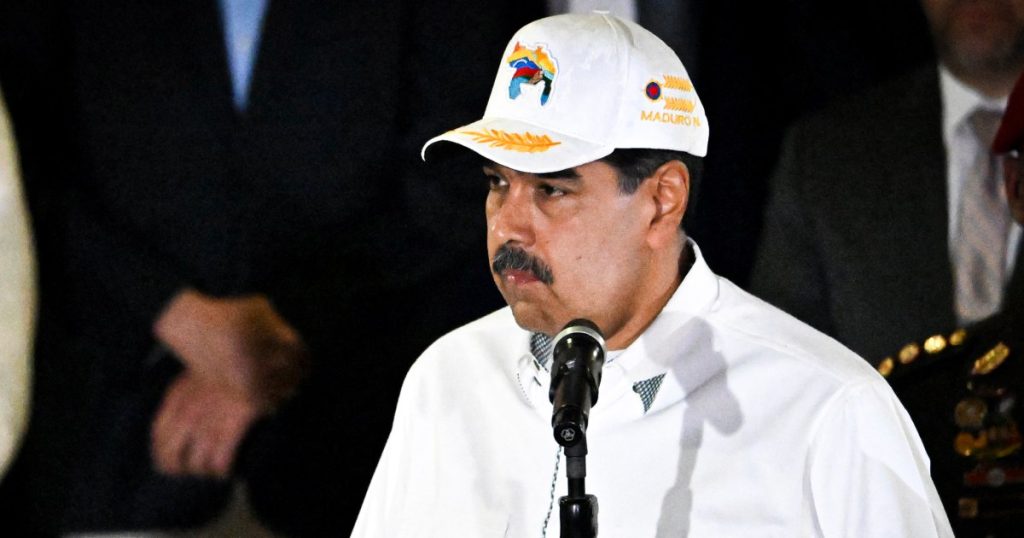U.S. officials held a secret meeting with representatives of Venezuelan President Nicolás Maduro in Mexico to express concerns about Venezuela’s electoral process. The meeting took place as the deadline approached for the United States to decide whether to reimpose sanctions on Venezuela’s oil industry. The Biden administration has threatened to reinstate oil sanctions if Maduro does not make progress on ensuring free and fair elections for the July 28 presidential election. The Venezuelan government has created obstacles for opposition participation, including barring its leading candidate, Maria Corina Machado. The purpose of the meeting was to discuss these concerns about Venezuela’s electoral process.
Daniel Erikson, the White House’s senior director for Western Hemisphere affairs, led the U.S. delegation in the talks with Venezuelan representatives in Mexico City. The details of the discussions were not disclosed, and it is unclear whether they focused on potential sanctions on Venezuela or if any progress was made in narrowing differences. The Venezuelan Information Ministry did not respond to a request for comment on the meeting. The Biden administration is considering various options before the expiration of a temporary U.S. license that allowed Venezuela to freely sell its crude oil.
The U.S. provided partial sanctions relief to Venezuela in October in response to an election deal between Maduro’s government and the opposition that included allowing the opposition to choose its own presidential candidate. The diplomatic engagement with Maduro and a relaxation of U.S. sanctions marked a departure from the “maximum pressure” policy of former President Donald Trump. However, the Biden administration is now deliberating whether reimposing sanctions on Venezuela’s energy sector could lead to higher global oil prices and an increase in Venezuelan migrants heading to the U.S.-Mexico border. These concerns are part of the current U.S. deliberations on whether to reimpose oil sanctions on Venezuela.
The U.S. delegation led by Daniel Erikson raised concerns about Venezuela’s electoral process during the meeting with representatives of President Nicolás Maduro. The United States has threatened to reinstate oil sanctions on Venezuela if Maduro does not fulfill his commitments for free and fair elections. The Biden administration is hoping to see progress on meeting these promises ahead of the presidential election scheduled for July 28. The Venezuelan government has faced criticism for obstructing opposition participation in the election, including barring key opposition figures like Maria Corina Machado from running against Maduro.
The purpose of the secret meeting in Mexico City was to discuss the concerns about Venezuela’s electoral process and potential implications for U.S. policy toward Venezuela. Despite the meeting, no final decision has been made on whether to reimpose sanctions on Venezuela’s oil industry. The outcome of the discussions and the potential impact on global oil prices and Venezuelan migration flows remain uncertain. The Biden administration’s approach to Venezuela marks a departure from the previous administration’s policy, signaling a willingness to engage diplomatically with Maduro while maintaining pressure on electoral transparency.
As the deadline approaches for a decision on reimposing oil sanctions on Venezuela, U.S. officials are continuing to consider various options. The expiration of the temporary U.S. license that allowed Venezuela to sell its crude oil is prompting discussions on the next steps in U.S. policy toward Venezuela. The potential consequences of reimposing sanctions, such as global oil price increases and a rise in Venezuelan migrants seeking to cross the U.S.-Mexico border, are key factors in the deliberations. The Biden administration’s engagement with Maduro’s government reflects a shift in approach from the previous administration and a willingness to address Venezuela’s electoral challenges.


